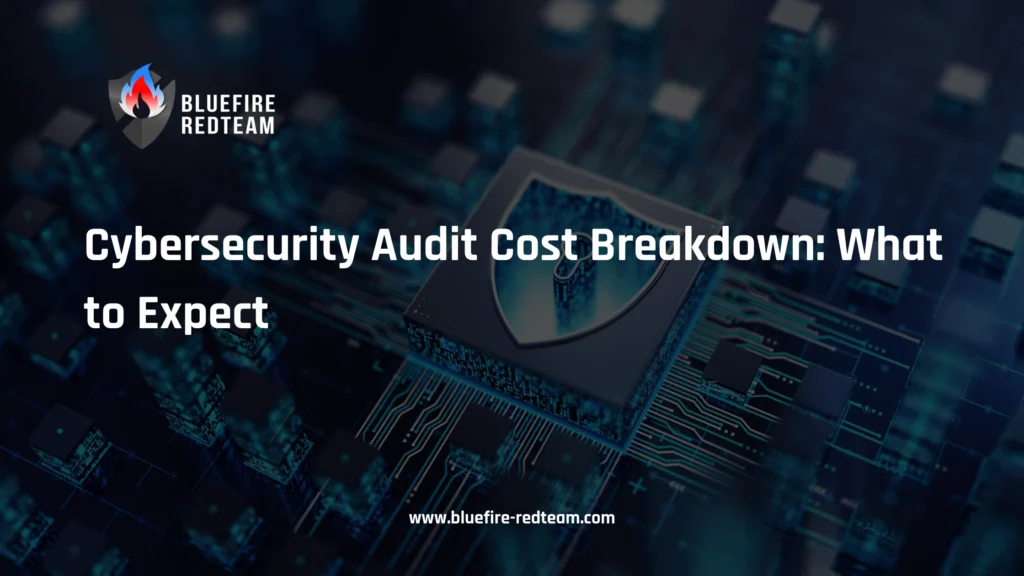Introduction: Why Cybersecurity Audit Pricing Feels Like a Black Box
If you’re comparing cybersecurity audit providers, you’ve probably run into the same problem — everyone promises a “comprehensive audit,” but the quotes range from a few thousand to tens of thousands of dollars.
What, then, really affects a cybersecurity audit’s cost? Furthermore, how can you be certain that you aren’t overspending on generic checklists that fail to take into account your actual risks?
This guide breaks down the key cost drivers, what’s typically included in a professional audit, and how to budget confidently for your organization.
Knowing how audit pricing operates will help you make better, quicker decisions and select a provider who is more concerned with outcomes than billable hours, whether you’re getting ready for compliance certification, vendor due diligence, or internal assurance.
What Is a Cybersecurity Audit (and Why It Matters)?
A cybersecurity audit is a formal, evidence-based assessment of your organization’s information security posture.
It evaluates how well your technical, administrative, and physical controls protect against threats — and how those controls align with recognized frameworks or regulatory requirements.
A typical audit includes:
- Policy & documentation review: Information security policy, access management, incident response, asset inventory, and vendor management.
- Technical control verification: Firewall configurations, patch management, encryption settings, and endpoint protection.
- User access and privilege analysis: Ensuring least privilege, MFA enforcement, and proper offboarding.
- Risk identification & scoring: Mapping vulnerabilities to potential business impact.
- Compliance validation: Aligning with frameworks such as ISO 27001, SOC 2, NIST 800-53, CIS Controls, or HIPAA Security Rule.
- Detailed reporting: A summary of gaps, prioritized remediation actions, and risk reduction recommendations.
In short: it’s the difference between assuming you’re secure and proving it.
What Drives Cybersecurity Audit Costs?
Audits are not all created equal. The cost varies according to five primary factors that determine the accuracy, depth, and deliverables of the audit.
1. Scope and Complexity
The single biggest factor is the scope of your audit.
A multinational corporation with numerous cloud providers, hybrid networks, and third-party integrations is not the same as a small startup with 20 endpoints and one cloud platform.
- Smaller scope: 1–2 systems, single location, limited users.
- Larger scope: Multiple business units, complex network topologies, diverse environments (on-prem + cloud).
💡 Pro tip: A narrow, focused scope can save time and cost — start small, validate your results, and expand once you have a baseline.
2. Compliance Framework or Standard
The framework you’re auditing against determines the level of rigor required.
| Compliance Framework | Complexity | Cost Impact |
|---|---|---|
| SOC 2 Type I | Moderate | ✅ |
| SOC 2 Type II | High (6-month evidence period) | 💰💰 |
| ISO 27001 | Very High (full certification process) | 💰💰💰 |
| NIST 800-53 / CMMC | High (detailed control mapping) | 💰💰 |
| HIPAA / GDPR | Moderate (policy-focused) | ✅ |
If you’re pursuing multiple frameworks (e.g., ISO 27001 and SOC 2), bundling can optimize cost and streamline evidence gathering.
3. Internal Readiness
Your internal documentation maturity directly impacts pricing.
- Well-prepared organizations with existing policies, control matrices, and prior audits typically require less auditor time and fewer iterations.
- First-time audits often need additional consulting for control mapping, policy writing, or risk register creation — which adds to overall cost.
Consider it this way: the more your team prepares in advance, the less time (and money) the auditor will need to prepare your story.
4. Testing Depth and Methodology
Some audits focus purely on documentation and interviews.
Others involve hands-on testing such as:
- Configuration reviews
- Vulnerability scanning
- Log analysis and SIEM validation
- Red team or penetration testing (optional layer)
Each additional testing layer adds scope, time, and specialized expertise — but it also provides a far more accurate picture of real-world resilience.
For your most important assets, Bluefire Redteam frequently suggests a hybrid strategy that combines a focused technical validation with a structured compliance audit.
5. Reporting and Remediation Support
Deliverables can range from a short summary to a comprehensive risk register with technical remediation plans.
A thorough audit report should include:
- Executive summary for leadership
- Detailed control findings with severity ratings
- Visual breakdowns (graphs/tables) of compliance status
- Step-by-step remediation guidance
Cheaper audits often skip the last piece — the “what next.”
That’s what leaves teams compliant on paper but still vulnerable in practice.
Average Cybersecurity Audit Price Ranges
While exact costs depend on your scope and framework, here’s a realistic baseline:
| Organization Type | Typical Audit Scope | Average Cost Range |
|---|---|---|
| Small Business | Internal security or gap assessment | $3,000 – $7,500 |
| Mid-Sized Organization | Multi-system or SOC 2 readiness audit | $7,500 – $20,000 |
| Enterprise / Multi-Framework | Full ISO 27001 or NIST-based compliance audit | $20,000 – $50,000+ |
⚙️ Remember: A well-scoped, properly executed audit often reduces future costs — by eliminating duplicate assessments and preventing costly remediation surprises later.
How to Estimate Your Own Audit Cost
To get an accurate quote, outline the following details before contacting providers:
- Systems in scope: List applications, servers, and cloud environments.
- Compliance goals: Which frameworks or certifications are required?
- Team size & geography: More users and regions = broader scope.
- Documentation readiness: Do you have existing policies and records?
- Preferred start date and timeline: Are you under client or regulator deadlines?
- Confidentiality requirements: Will the provider sign an NDA before reviewing materials?
Having these details ready helps providers like Bluefire Redteam generate precise, transparent proposals — often within 48 hours.
How Bluefire Redteam Keeps Audit Costs Predictable
At Bluefire Redteam, we believe cybersecurity audits should bring clarity, not confusion.
We’ve built our audit process around transparency, adaptability, and measurable outcomes.
Here’s what sets us apart:
- 🔒 NDA-First Engagement: We execute mutual NDAs before receiving any documentation — protecting your confidentiality from day one.
- 🧩 Flexible Frameworks: Whether you use your own compliance table or an external framework, we adapt our methodology to your format.
- ⚙️ Modular Pricing: Scale your audit up or down — from readiness assessments to full certification audits — without hidden fees.
- 🧠 Actionable Remediation: Each report includes a prioritized, technical roadmap to close gaps and strengthen posture.
- 📈 Experienced Analysts: Our team includes certified assessors with backgrounds in red teaming, penetration testing, and regulatory compliance.
This method helps clients turn compliance into a security advantage in addition to guaranteeing a reasonable and predictable audit cost.
Why Investing in a Quality Audit Pays Off
Think of an audit not as an expense, but as a risk reduction multiplier.
A well-executed cybersecurity audit can:
- Identify weaknesses before attackers do
- Help meet customer and regulatory requirements faster
- Boost credibility during client or investor due diligence
- Reduce the likelihood and impact of security incidents
- Serve as a foundation for continuous improvement and certification
In today’s environment, where data breaches can cost millions, a structured audit delivers ROI through resilience, trust, and compliance readiness.
Ready to Discuss Your Audit Scope?
We can assist you in defining scope, estimating cost, and planning delivery in total confidentiality if you’re getting ready for a cybersecurity audit.
Here’s how it works:
- Share your audit goals or compliance table.
- We execute a mutual NDA before any document exchange.
- Our analysts perform a scoping review and deliver a tailored quote within 48 hours.
👉 Request an Audit Quote
or
👉 Schedule a 15-Minute Consultation
Bluefire Redteam helps organizations navigate cybersecurity audits with confidence — no guesswork, no hidden costs, and no vendor lock-in.


